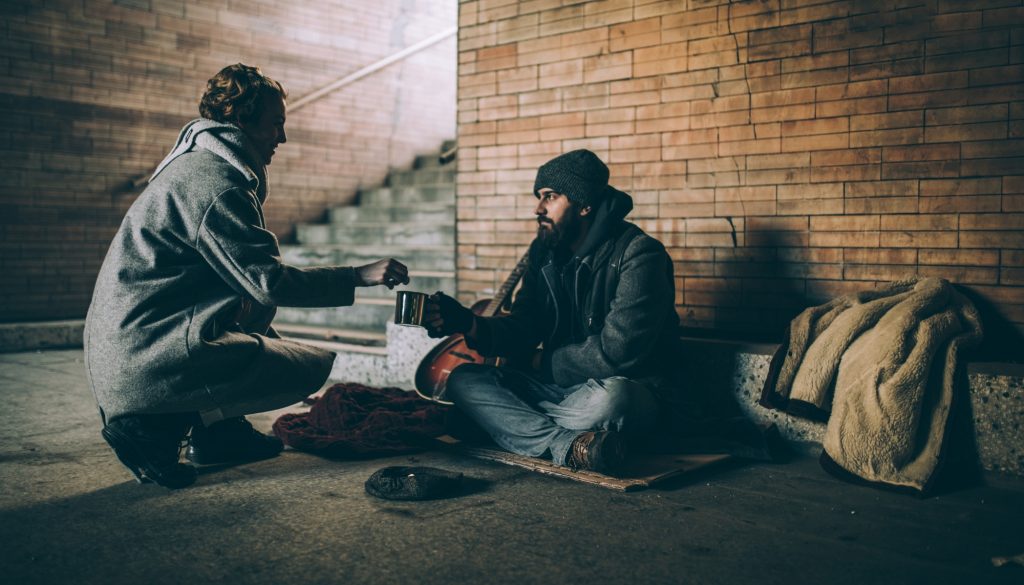
Produced by researchers at the University of York, The Roadmap to End Homelessness Amongst Veterans, provides a blueprint to ensure current and future generations of veterans have the skills and support required to avoid homelessness and establish a long-term sustainable home.
|
Get weekly jobs and transition advice. Unsubscribe anytime. |
The research highlights that some veterans, particularly those who join and leave the Service at a young age, are not well enough prepared to find and maintain a home after their time in the Armed Forces. The report, which has been funded by the Forces in Mind Trust and supported by the Riverside Group and Cobseo, says that large-scale reforms are needed to tackle the issue.
The government have created a dedicated referral pathway for support for veterans experiencing homelessness in 2023 but this report clearly sets out the preventative actions which should be taken to help ex-Service personnel avoid reaching a point of crisis in the first place.
The report is based on first hand interviews with a range of Service personnel, veterans, and other military stakeholders. It sets out how the Ministry of Defence, the Office for Veterans Affairs, local authorities, and housing providers can work together to prevent veteran homelessness in the first place and provide support in life after Service.
The majority of recommendations focus on identifying and eliminating potential causes of veteran homelessness, including:
– Reviewing Chain of Command discretion for immediately discharging Service personnel without confirmation of stable, secure accommodation.
– Reviewing the welfare assessment process to make sure it is conducted for every Service person as they leave the Armed Forces.
– Developing a bespoke welfare and resettlement service for non-UK Service personnel, and ensuring all non-UK Service personnel complete applications to remain before discharge.
– Providing “floating” support (support not linked to housing) for those transitioning out of military accommodation and/or at risk of homelessness.
– Ensuring medically discharged personnel are automatically entitled to remain in service family or single living accommodation until stable and sustainable accommodation is available.
The research identified that Service leavers who are discharged quickly on medical or disciplinary grounds, or the failure to complete training are at particular risk of homelessness. Researchers highlighted that some of these leavers had to find housing at short notice, sometimes the same day as being discharged from the Armed Forces.
The research highlighted that younger Service leavers have had less time to financially plan, often have fewer skills than older personnel, and are more likely to have been discharged at pace. Providing support for younger Service leavers is key. Data on Service leavers published in September 2022 shows more than half of those leaving the Armed Forces were under 30 years of age (52.6%).
The research also identifies that the gap between military and civilian life is widening for some due to the cost-of-living crisis and housing market challenges which are causing rents to rise.
Paul Chadwick, a veteran with lived experience of homelessness, said: “When I became homeless at 60 and moved into supported housing I met a few younger lads and realised that not much had changed from 30 years ago.
“They still didn’t know much about civilian life and there isn’t enough in place to prepare you for life after your military career. The research that has been done shows that there is a greater need for support, specifically knowing how to apply for jobs, how to write a CV, how to apply for housing, and what third sector support is available.”
Research lead, Dr Lisa O’Malley, Senior Lecturer at University of York, said: “The backdrop to this research is a very stretched housing market across the UK, which increases the risk of housing exclusion and homelessness for all members of society.
“However, from our first-hand conversations with veterans, as well as data analysis, we discovered that the gap between military and civilian life is getting wider – the impact of a widening inequality in society generally; increasing employment insecurity; the cost-of-living crisis; the housing crisis and a lack of preparedness among some Service leavers makes leaving the Service increasingly uncertain for more and more veterans.”
Michelle Alston, Chief Executive of Forces in Mind Trust, said: “Supporting former Service personnel and their families into a successful transition to civilian life is key and we recognised the importance of secure housing in achieving this. We were therefore keen to partner on this research with the University of York and Riverside Housing Group to identify a preventative approach to addressing these challenges.
“It is therefore key that this report considers all of the touchpoints in the life of Service personnel to help them avoid homelessness. The report highlights that some veterans, particularly those who join and leave at a young age, are not sufficiently prepared during their time in the Armed Forces to find and maintain a home after they leave. By implementing this roadmap, we can help support veterans and their families to secure their housing and experience fulfilling civilian lives.”